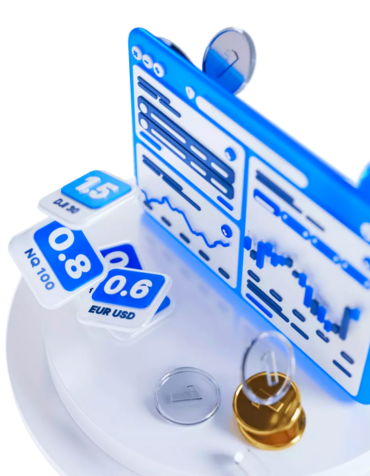
Foreign exchange (FX) and forex trading can seem complex and overwhelming to beginners. However, with a solid understanding of the basics, essential tools, profitable strategies, and common mistakes to avoid, anyone can start their journey in currency trading. In this beginner’s guide, we will explore the world of FX and forex trading, equipping you with the knowledge you need to make informed decisions and potentially achieve financial success.
Are you curious about currency trading? Do you want to learn how to make a profit by buying and selling currencies? If so, you’ve come to the right place! In this beginner’s guide, we will explore the basics of currency trading and provide you with valuable insights to help you navigate the exciting world of forex trading.
Currency trading involves buying and selling currencies with the aim of making a profit. It is a dynamic and fast-paced market that operates globally. In fact, the forex market is the largest and most liquid financial market in the world, where trillions of dollars are traded daily. With such high trading volumes, the forex market offers numerous opportunities for traders to capitalize on currency fluctuations.
Before diving into the complexities of forex trading, it is essential to understand the basics. At the core of currency trading are currency pairs. Each pair represents the value of one currency relative to another. For example, the EUR/USD pair indicates the value of the euro in relation to the US dollar. Traders speculate on whether the value of one currency will rise or fall compared to the other, and based on their analysis, they make buying or selling decisions.
Now that you have a grasp of the basics, let’s delve into how currency trading actually works. Currency trading takes place in the forex market, where buyers and sellers come together to trade currencies. Unlike traditional stock markets, the forex market operates 24 hours a day, five days a week, allowing traders to engage in trading at their convenience. This flexibility is one of the many attractions of forex trading.
Forex trading is primarily conducted through online platforms provided by forex brokers. These platforms offer traders real-time quotes, charts, and tools to facilitate trading. With just a few clicks, traders can place buy or sell orders, taking advantage of the constantly changing currency exchange rates. It is important to note that forex trading involves both potential profits and risks, so it is crucial to educate yourself and develop a solid trading strategy.
Now that you have a basic understanding of currency trading, let’s explore the world of forex trading further. Forex trading offers various advantages to individuals seeking to enter the financial markets. One major benefit is its high liquidity, which means there is always a buyer and seller available for every trade. This ensures that traders can enter and exit positions easily, without worrying about finding a counterparty.
Additionally, with forex trading, traders have the opportunity to profit from both rising and falling markets. In other words, you can make money whether a currency is appreciating or depreciating. This flexibility allows traders to adapt to different market conditions and potentially generate profits in any market environment.
Moreover, the forex market is highly accessible, allowing traders to start with relatively small investment amounts. Unlike other financial markets that require substantial capital, forex trading allows individuals to enter the market with as little as a few hundred dollars. Beginners can also open demo accounts to practice trading with virtual money before risking their hard-earned capital. This provides an excellent opportunity to learn and refine trading strategies without the fear of losing money.
As you can see, currency trading is a fascinating and potentially lucrative endeavor. By understanding the basics, learning from experienced traders, and continuously educating yourself, you can embark on a rewarding journey in the world of forex trading. So, what are you waiting for? Start exploring and honing your trading skills today!
We round up the best brokers that we believe offer best value for traders.





When it comes to currency trading, having the right tools is crucial for success. While there are many tools available, let’s focus on three key aspects that can significantly impact your trading journey.
One of the first and most important tools you need is a reliable forex broker. With countless brokers in the market, it’s essential to do thorough research and choose one that suits your trading needs. Look for brokers regulated by reputable bodies, as this ensures they adhere to strict guidelines and maintain transparency.
Competitive spreads and leverage options are also crucial factors to consider. Lower spreads mean lower trading costs, while leverage allows you to control larger positions with a smaller amount of capital. Additionally, user-friendly trading platforms make executing trades and analyzing the market much easier.
Remember, finding the right broker is not a one-size-fits-all approach. Each trader has unique requirements, so take your time to compare different brokers and choose the one that aligns with your goals and preferences.
Technical analysis is another essential tool that can greatly enhance your trading skills. By studying price charts, indicators, and patterns, you can gain valuable insights into market trends and make informed trading decisions.
There are numerous technical analysis tools and strategies available, such as moving averages, Fibonacci retracements, and candlestick patterns. Learning how to use these tools effectively can help you identify potential entry and exit points for trades.
However, mastering technical analysis requires time and practice. It’s important to understand that technical analysis is not foolproof and should be used in conjunction with other forms of analysis. Combining technical analysis with fundamental analysis, which we’ll discuss next, can provide a more comprehensive view of the market.
While technical analysis focuses on price movements and patterns, fundamental analysis delves into the underlying factors that drive currency movements. Economic indicators, central bank decisions, and geopolitical events all play a significant role in shaping currency values.
Keeping an eye on economic news and staying informed about global events is crucial for successful currency trading. For example, if a country releases positive economic data, such as strong GDP growth or low unemployment rates, it could strengthen its currency. Conversely, negative news can lead to currency depreciation.
Understanding fundamental analysis allows you to make more informed trading decisions by considering the broader economic and political landscape. By combining fundamental analysis with technical analysis, you can develop a well-rounded trading strategy that takes into account both short-term price movements and long-term trends.
In conclusion, choosing a reliable forex broker, mastering technical analysis, and understanding fundamental factors are essential tools for successful currency trading. By investing time and effort into these areas, you can increase your chances of achieving consistent profitability in the dynamic world of forex trading.
There are various trading strategies to consider in currency trading. Scalping involves making multiple quick trades to profit from small price movements. On the other hand, swing trading aims to capture larger price swings over several days or weeks. It’s important to choose a strategy that aligns with your trading style and risk tolerance.
Effective risk management is crucial in currency trading to protect your capital and minimize losses. This includes setting stop-loss orders to limit potential losses, diversifying your trading portfolio, and not risking more than a small percentage of your capital on any single trade. A disciplined approach to risk management is vital for long-term success.
Each currency pair has its unique characteristics and behavior. Understanding currency correlations can help traders anticipate how certain pairs might move in relation to changes in other pairs. By analyzing correlations, you can diversify your trades and potentially reduce risk.
Overtrading, or excessive trading, is a common mistake that can lead to significant losses. It’s important not to let emotions drive your trading decisions or become overly obsessed with constantly being in the market. Following a trading plan and exercising discipline are key to avoiding this pitfall.
Emotions can cloud judgment and lead to irrational trading decisions. Greed, fear, and impatience can cause traders to deviate from their trading plans and make impulsive trades. Developing emotional discipline by staying calm, objective, and sticking to your strategy will help you avoid costly mistakes.
Operating without a trading plan is another common mistake among beginners. A trading plan outlines your goals, risk tolerance, entry and exit strategies, and money management rules. Having a well-defined trading plan helps you stay focused, minimize impulsiveness, and increase your chances of success.
By understanding the basics of currency trading, utilizing essential tools, implementing profitable strategies, and avoiding common mistakes, you can embark on your forex trading journey with confidence. Remember, forex trading requires continuous learning and practice. Stay informed, adapt to market conditions, and always strive for improvement as you navigate the exciting world of currency trading.